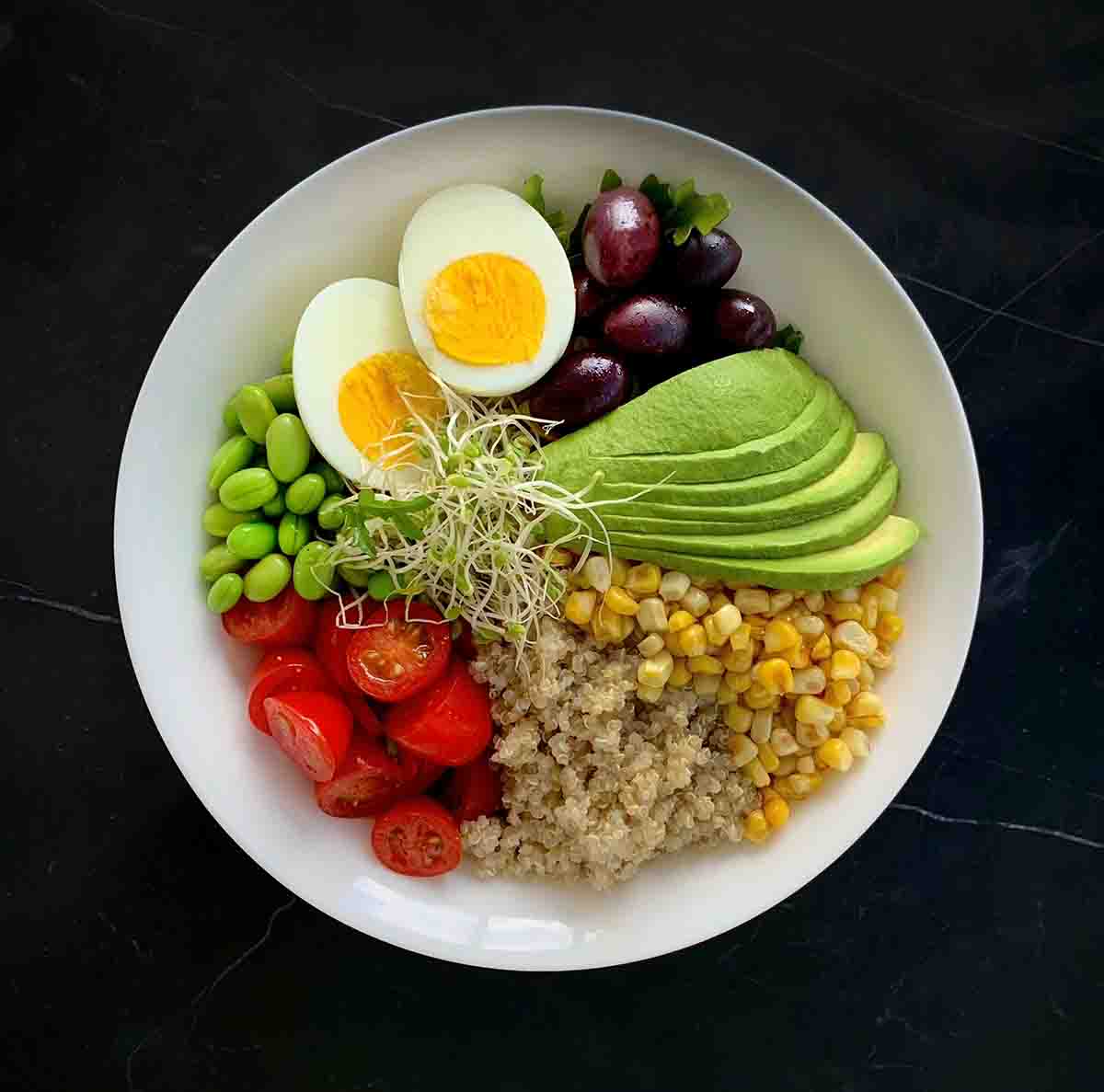Gut Health and Bloating: Why You Feel Bloated After Meals and How to Fix It.
That uncomfortable, tight feeling after eating doesn’t have to be your normal. If you regularly experience bloating, gas, or that “stuffed” sensation even after moderate meals, your digestive system may be trying to tell you something important. The good news? Most post-meal bloating is entirely preventable with the right approach.
While occasional bloating is normal, persistent digestive discomfort often points to simple issues with how, what, or when you’re eating and drinking. Small adjustments to your daily routine can make a dramatic difference in how you feel after every meal.
Keep reading to discover the most common causes of post-meal bloating and learn practical solutions you can implement starting with your very next meal. Say goodbye to that uncomfortable, sluggish feeling for good.
Why You Feel Bloated After Eating (and What It Says About Your Gut Health)
Post-meal bloating can stem from various factors, some more obvious than others. Understanding the root cause of your discomfort is the first step toward finding lasting relief. The way you eat, what you eat, and even what you drink can all contribute to that uncomfortable, distended feeling.
Common bloating triggers include eating too quickly, consuming gas-producing foods, drinking carbonated beverages with meals, or having an imbalance in your gut health and digestive system. Even seemingly healthy habits, like drinking large amounts of water during meals, can sometimes contribute to digestive discomfort.
If you’re wondering why your stomach feels so uncomfortable after eating, here are the most frequent culprits:
Eating too quickly: When you eat fast, you swallow excess air, which can cause immediate bloating and gas. (Mayo Clinic)
Poor hydration habits: Not drinking enough water throughout the day, then overcompensating during meals, can disrupt digestion. (Johns Hopkins)
Low-quality water: Tap water with high chlorine content or chemical additives can irritate the digestive tract and affect gut bacteria balance. (Southwest Environmental Health Sciences Center)
High-sodium processed foods: Excess sodium causes water retention, leading to bloating and puffiness. (Johns Hopkins Bloomberg School of Public Health)
Lack of digestive enzymes: Your body may not be producing enough enzymes to properly break down certain foods. (Cleveland Clinic)
Stress while eating: Eating under stress interferes with proper digestion and can cause immediate bloating. (Institute for Functional Medicine)
Food intolerances: Lactose intolerance, gluten sensitivity, or reactions to specific foods can cause significant bloating. (NIDDK)
Imbalanced gut bacteria: An unhealthy gut microbiome can lead to poor digestion and excessive gas production. (Frontiers in Microbiology)
Dehydration: Chronic dehydration slows digestion and can cause constipation, leading to bloating. (Healthline)
How to Improve Gut Health and Prevent Bloating
Reducing post-meal bloating doesn’t require dramatic dietary changes or expensive supplements. The following strategies address the most common causes and can provide noticeable relief within days of implementation.
1. Start Your Day with Proper Hydration
Beginning your morning with adequate hydration sets your digestive system up for success throughout the day. When you’re properly hydrated, your body produces optimal amounts of digestive juices, and food moves more efficiently through your system.
Spritzer Natural Mineral Water provides essential minerals like magnesium and potassium that support healthy digestion and help maintain proper fluid balance in your body. The natural mineral content also supports optimal pH levels in your stomach, promoting better enzyme function.
Make it a habit to drink a full glass of mineral water upon waking, at least 30 minutes before breakfast. This simple practice can significantly improve how you feel after your first meal of the day.
2. Time Your Water Intake Strategically
While staying hydrated is crucial for digestion, drinking large amounts of water during meals can dilute digestive enzymes and stomach acid, potentially leading to bloating and inefficient digestion.
The optimal approach is to drink most of your water between meals, then limit intake during eating to small sips as needed. Aim to stop drinking large amounts of fluids 30 minutes before meals and wait at least an hour after eating before resuming normal hydration.
This strategic timing ensures you maintain proper hydration while allowing your digestive system to function at its best during meals.
3. Slow Down Your Eating Pace
One of the most effective ways to reduce bloating is simply eating more slowly. When you eat quickly, you swallow excess air, don’t chew food thoroughly, and don’t give your brain time to register fullness signals.
Try putting your fork down between bites, chewing each mouthful at least 20 times, and taking occasional pauses during your meal. This mindful approach to eating can dramatically reduce post-meal bloating while helping you enjoy your food more fully.
Setting a timer for meals or eating with others can naturally encourage a slower, more relaxed eating pace.

4. Reduce Bloating Naturally: Choose Gut Healthy Foods
Certain foods naturally support healthy digestion and can help prevent bloating. Foods rich in potassium, like bananas and leafy greens, help counteract sodium-induced water retention. Ginger, fennel, and peppermint have natural anti-inflammatory properties that soothe the digestive tract.
Probiotic-rich foods like yogurt and fermented vegetables support healthy gut bacteria, which aids in proper digestion and reduces gas production.
Equally important are prebiotics — fibers that feed your healthy gut bacteria. Foods like garlic, onions, greenish-to-yellow bananas, and asparagus provide the fuel your gut microbiome needs to thrive.
Lean proteins and easily digestible whole grains typically cause less bloating than processed or high-fat foods.
Focus on incorporating one or two of these digestive-friendly foods into each meal rather than completely overhauling your diet all at once.
5. Reduce High-Sodium Processed Foods
Excess sodium is one of the biggest contributors to bloating and water retention. Most processed and restaurant foods contain far more sodium than your body needs, causing you to retain fluid and feel puffy and uncomfortable.
Reading labels and choosing lower-sodium alternatives can make an immediate difference in how you feel after meals. Fresh, whole foods naturally contain less sodium than their processed counterparts and provide better nutrition overall.
When you do consume higher-sodium foods, balance them with potassium-rich options and ensure you’re drinking enough water to help your kidneys process the excess sodium efficiently.
6. Address Water Quality Issues
The quality of water you drink can significantly impact your digestive health, often in ways you might not expect. While many people focus on removing contaminants from their water, they may inadvertently be removing beneficial elements their digestive system needs.
Reverse osmosis (RO) and heavily filtered water, while pure, strip out all minerals—including the beneficial ones like magnesium, calcium, and potassium that support healthy digestion. These minerals help maintain proper pH balance in your stomach, support muscle contractions in your digestive tract, and aid enzyme function. Without them, some people experience digestive sluggishness and imbalanced electrolyte levels.
On the other hand, chlorinated tap water can disrupt beneficial gut bacteria, while hard water with excessive minerals can cause digestive irritation in sensitive individuals.
Natural mineral water with balanced magnesium and calcium like Spritzer provides the ideal middle ground—beneficial minerals in balanced proportions without chemical additives or the mineral depletion that comes with heavy water filtration.
7. Practice Stress-Relief During Meals
Eating while stressed, rushing, or distracted can cause immediate digestive problems, including bloating. When you’re in “fight or flight” mode, your body diverts energy away from digestion, leading to poor food breakdown and gas buildup.
Creating a calm eating environment can dramatically improve your digestion. Turn off screens, sit down properly, and take a few deep breaths before beginning your meal. Even taking 30 seconds to relax and focus on your food can improve how you feel afterward.
Consider this mealtime mindfulness as important as the food itself—your digestive system will respond positively to the reduced stress.
8. Support Your Gut Microbiome
A healthy balance of gut bacteria is essential for proper digestion and reduced bloating. Your gut microbiome helps break down food, produces beneficial compounds, and communicates with your brain about satiety and digestive needs.
Staying properly hydrated with quality water supports a healthy gut environment. The minerals in natural mineral water can help maintain the optimal pH and mineral balance that beneficial bacteria need to thrive.
Including a variety of fiber-rich foods, limiting unnecessary antibiotics, and managing stress all contribute to a healthier gut microbiome and reduced digestive discomfort.
Special Considerations for Digestive Sensitivities
Managing Food Intolerances
If you suspect specific foods are causing your bloating, consider keeping a simple food diary for a week. Note what you eat and any digestive symptoms that follow. Common triggers include dairy, gluten, beans, cruciferous vegetables, and artificial sweeteners.
Rather than eliminating entire food groups permanently, try reducing suspected triggers and reintroducing them gradually to identify your specific sensitivities. Many people find they can tolerate small amounts of trigger foods when eaten as part of a balanced, mindful eating approach.
Hormonal Bloating
For women, hormonal fluctuations throughout the menstrual cycle can cause significant bloating, particularly in the week before menstruation. During this time, focus especially on reducing sodium intake, maintaining consistent hydration, and incorporating gentle movement to support circulation.
The mineral balance provided by natural mineral water can be particularly helpful during hormonal fluctuations, as proper electrolyte levels support optimal fluid balance in the body.
Simple Changes, Comfortable Digestion
Reducing post-meal bloating doesn’t require complicated protocols or expensive treatments. By addressing hydration habits, eating behaviors, and food choices, most people can experience significant relief within just a few days.
The foundation of comfortable digestion starts with proper hydration using quality water. Spritzer Natural Mineral Water provides the optimal mineral balance your digestive system needs to function efficiently, without the chemical additives that can sometimes irritate sensitive stomachs.
Small, consistent changes in how you approach meals—from strategic water timing to mindful eating practices—can transform your post-meal experience. Your digestive comfort is largely within your control through these simple, sustainable adjustments.



